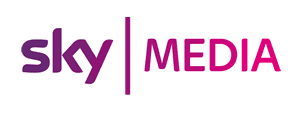Revenue management is an extremely important concept within thehospitality industry, as it allows hoteliers to anticipate demand and optimize availability and rates, in order to achieve the best possible financial results.In this article, we’ll answer the question “what is revenue management?”
To understand revenue management, it must first be defined. With in the hospitality industry, the widely accepted definition is:“Selling the right room, to the right customer, at the right time, at the right price, through the right distribution channel, with the best profitability”.
This involves the use of performance data and analytics, which are used to help hotel owners more accurately forecast demand and other consumer behavior. This, in turn, allows them to make smarter decisions about pricing and distribution, to maximize revenue and, therefore, profit.
As a concept, revenue management actually started in the airline industry, where companies found ways to anticipate consumer demand in order to introduce dynamic pricing.However, it is applicable in any industry where different customers are willing topay different prices for the same product, when there is only a certain quantity of this product to sell and when this product must be sold before a certain time.
To carry out effective revenue management, a business must also have a way to forecast consumer demand and spending patterns, so that informed adjustments can be made.
Why is revenue management important?
For hoteliers,hotel revenue managemen toffers the opportunity to make the most of a perishable inventory of hotel rooms, allowing them to maximize the amount of money generated by the business.Essentially, it empowers decision makers to make informed, data-driven choices, rather than relying on instinct or guesswork.
Hotels, like many other businesses, have fixed costs, which must be paid regardless of the number of rooms sold and regardless of the amount of money generated by guests.Therefore, through a revenue management strategy, hotel owners can ensure that their costs are covered and that their prices and services are dynamically optimized.
Revenue Management vs Yield Management
Within thehospitality industry, revenue management and performance management are two of the most useful tools available to managers, allowing them to maximize the amount of money they earn from guests.Although the two concepts are closely related and share amany similarities, there are also important differences.For more information on yield management, please also read the article”What is yield management?”» .
Understanding forecasts
Forecasting is an important concept to master in trying to answer the question: what is revenue management?InSimply put, forecasting is a way of using past data, present data, and trend analysis, in order to make future predictions.This then allows you to anticipate future conditions and events.
For those involved in hotel management, forecasting has a useful role to play, as it makes it easier to plan for the future and to make more informed strategic decisions.Additionally, it can help you maximize the amount of revenue generated from a stock of perishables, as you can predict demand levels in advance.
Important Forecasting Tips
Below, you’ll find a breakdown of some of the top tips to keep in mind when using forecasting as part of a hotel revenue management strategy, along with explanations of why these tips are important. .
Keep accurate records
The answer to the question “What is revenue management? Doing this involves using the information that is available to you and this, in turn, means that keeping accurate records is crucial.In particular, you should track occupancy rates, revenue, room rates, and other key performance indicators discussed later in this article.
Use historical data
Most forecasts rely heavily on past data and the assumption that historical trends may repeat themselves, and this is especially true with hotel revenue management.For example, you might notice when looking at your data that you see a drop in demand from September to December, or that your busiest months are usually summer.This information can be used to make reasonable predictions about what will happen to the application in the future.

